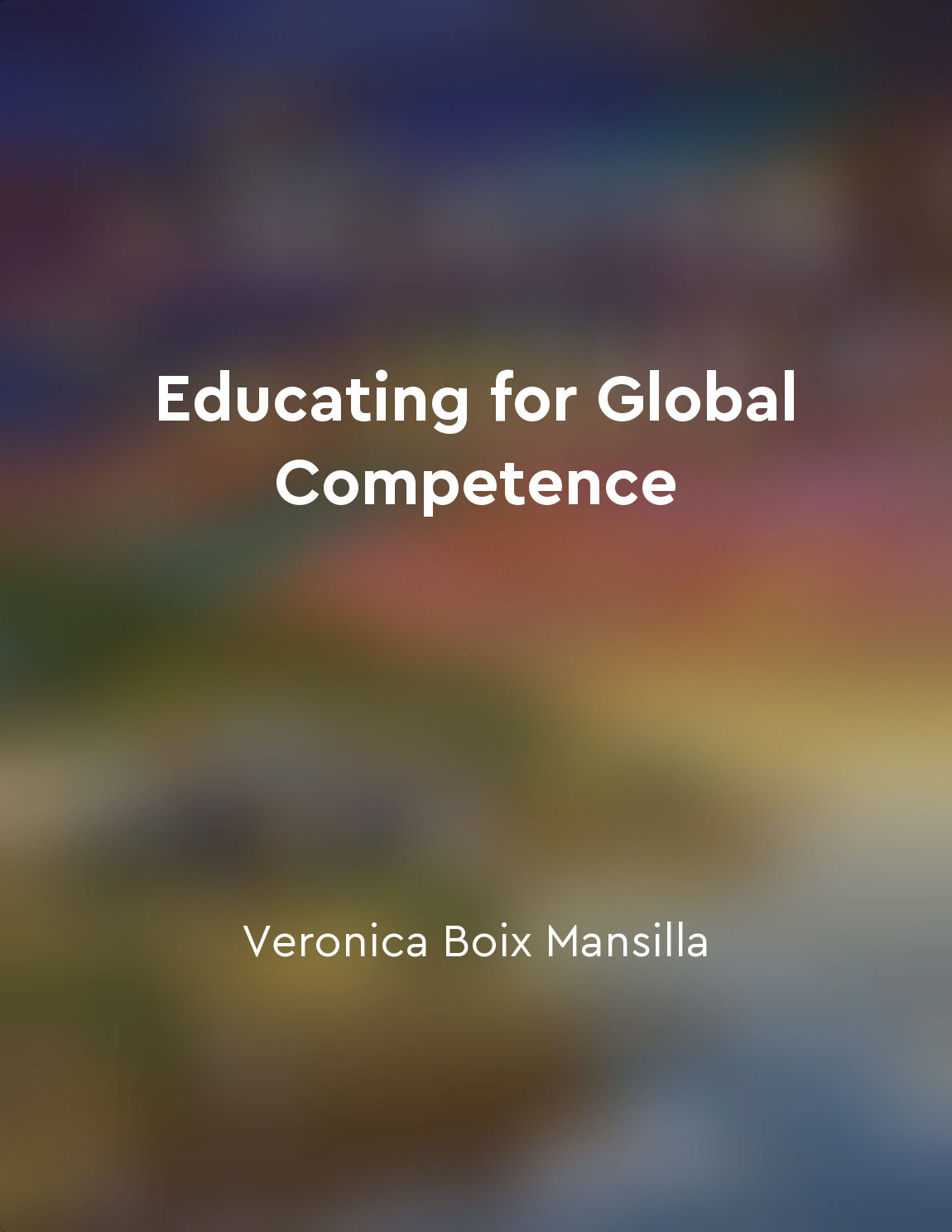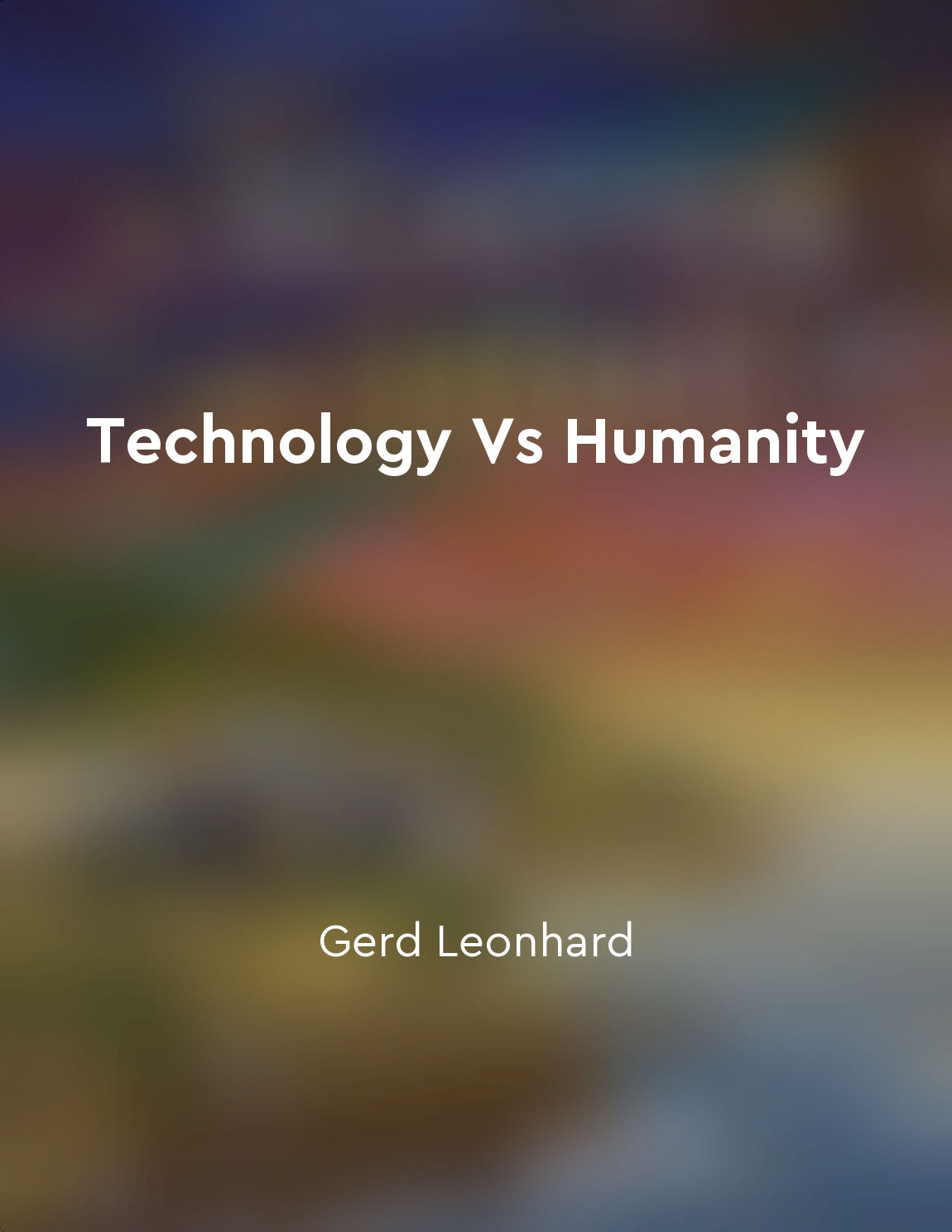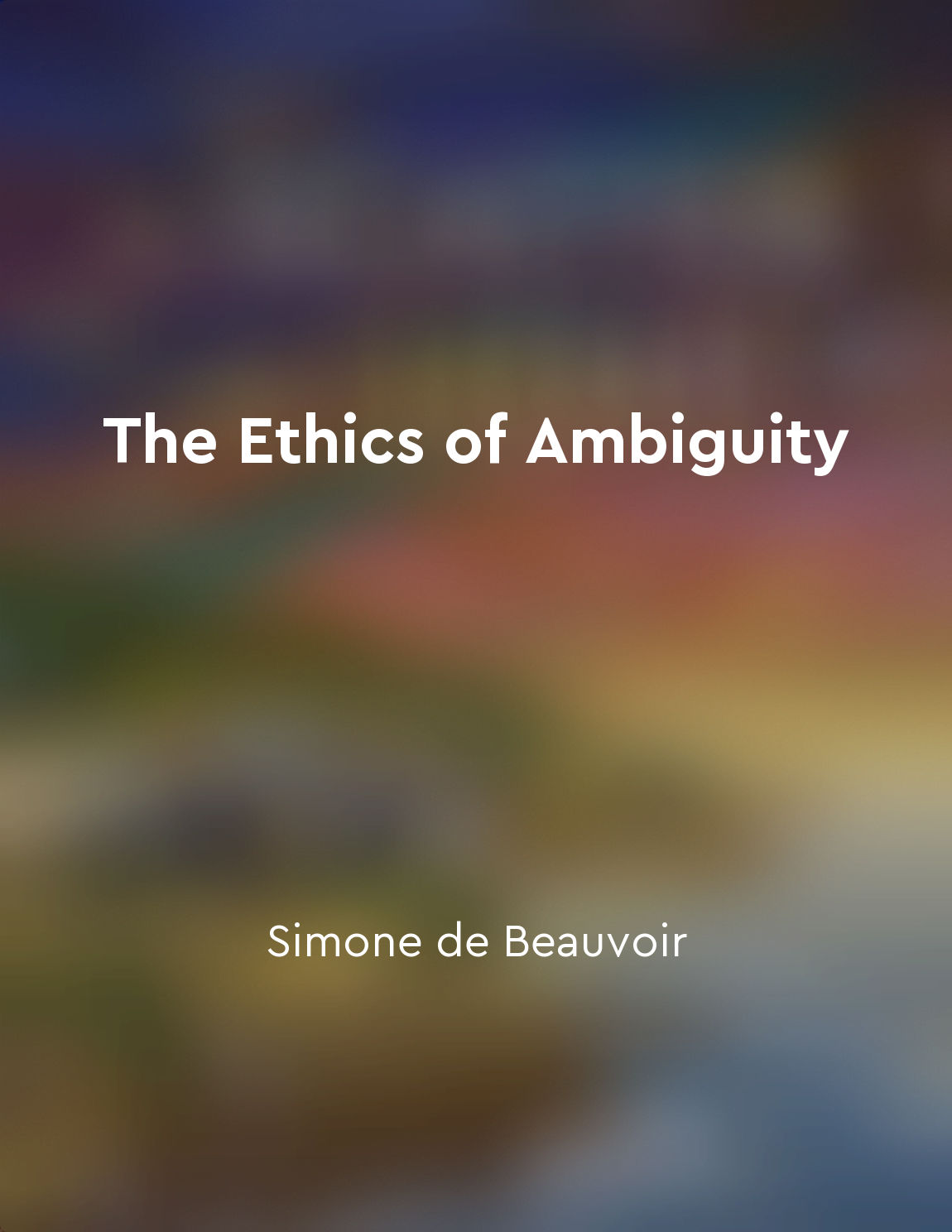Ethics are not universal, but contextdependent from "summary" of The Ethics of Ambiguity by Simone de Beauvoir,Bernard Frechtman
Ethics are not fixed and unchanging principles that can be universally applied to all situations. Instead, ethical decisions are influenced by the specific context in which they arise. This means that what is considered ethical in one situation may not necessarily be considered ethical in another. The idea of context-dependent ethics challenges the notion of a set of universal moral guidelines that can be applied in all circumstances. It recognizes that ethical judgments are often complex and multifaceted, shaped by a variety of factors such as cultural norms, personal beliefs, and the specific details of a given situation. For example, what may be considered ethical behavior in one culture may be viewed as unethical in another. Similarly, what may be considered ethical in a time of peace may be deemed unethical in a time of war. This highlights the importance of considering the unique circumstances surrounding each ethical decision...Similar Posts
Rational arguments often fail to change minds
The belief that we can change people's minds by reasoning with them is deeply ingrained in Western culture. From the time we ar...
Communication and connection with others enrich life's meaning
Communication and connection with others are crucial aspects of human existence. It is through our interactions with others tha...

Building resilience is important for global citizenship
Building resilience is a crucial trait for individuals who aspire to become global citizens. In a rapidly changing and intercon...
Developing a positive mindset can empower individuals to reach their full potential
In the pursuit of success, one of the most crucial elements is cultivating a positive mindset. This mindset serves as a powerfu...
Freedom is necessary for moral responsibility
In order to understand the concept that freedom is necessary for moral responsibility, we must first consider the nature of mor...
Rational decisionmaking requires systematic analysis
Systematic analysis is essential for making rational decisions. This means breaking down a problem into smaller components and ...

Trust is critical in the digital age
Trust is the glue that holds our society together. It is the foundation of all relationships, whether personal or professional....
Be willing to change your mind based on new information
When you encounter new information that challenges your existing beliefs or opinions, it is important to approach it with an op...

